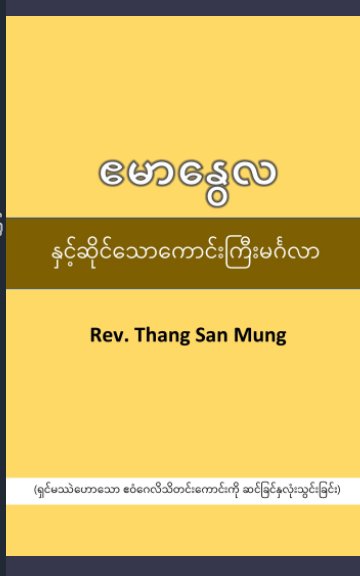ABSTRACT
of my recent master's thesis, entitled "The cross as a theological basis of Paul's pastoral leadership in the Corinthians Correspondence,"
submitted to the faculty of the Torch Trinity Graduate School of Theology (Fall 2007)
The role of Paul as a pastor-leader in the ministerial setting of local congregation, especially in the Corinthian church, is a current interest. Though not having abundant publication like other Pauline topics, the later part of the twentieth century had but found growing number of publication on this subject. However, the observation of this thesis is that deeper reading on Paul’s pastoral theology and his leadership is still seldom done.
Therefore, by paying close attention to the two Corinthian epistles and as far as they can reflect at best, a deeper reading into Paul’s theological conviction that is the inner motif of his pastoral techniques and leadership practice is made in this thesis. On the course of this deeper reading, it becomes clearer that the cross [or VIhsou/n Cristo.n kai. tou/ton evstaurwme,non] is the very theological-ethical basis of Paul to spell out certain leadership concept and practice such a unique pastoral technique.
Certainly, various personal expressions of the apostle himself, such as his self-resolution (1 Cor. 2:2-4), his constant reference to the concept of diV o]n Cristo.j avpe,qanen in his every pastoral counsels (cf., 8:11), his personal preference to embody the death of Christ by taking weak [and even foolish] terminology upon himself, his persistent hope of resurrection [and even claim of more power and grace] in the midst of his present hardship that was rather claimed to be his resemblance of Christ in His death and resurrection (15:1-4; 2 Cor. 11; 13), are the best evidence.
In an agreement, the first chapter of this thesis describes the pastoral function of Paul’s theology of the cross in the Corinthian correspondence. In the literary context of the correspondence, the cross [the theological concept of “Christ the crucified”] is a new pattern of life and ministry to Paul, and as it is the motivating force of his life and ministry also. In chapter two, as various metaphors were richly employed in the letters, Paul’s self-understanding as a pastor-leader expressed in those metaphors is examined. At each conclusion, the concept of the cross is read as the evident and coherent theological-ethical language of Paul beneath of all those expressions. In chapter three, a more detail reading on the two epistles is made while giving special attention to how the apostle had devised his deep theological conviction of the cross to meet the urgent needs of the church and make his pastoral instructions [counsels, advices] on those burning situations.
At its conclusion, therefore, this thesis inaugurates Paul the apostle as an exemplary pastor-leader, who left a living tradition of Christian leadership and pastoral practice by living out the tradition of Christ, and also as a pastoral theologian, who practically lived out what he deeply believed. Further, while calling for further reading on pastoral voices of even the whole New Testament as its academic concern, this thesis also invites church leaders of all time to find their way back to the Gospel-lifestyle that always say that eivde,nai eiv mh. VIhsou/n Cristo.n kai. tou/ton evstaurwme,non. This is the other concern of the thesis to the cry of Christ’s church for Christ-like leadership after all.

No comments:
Post a Comment